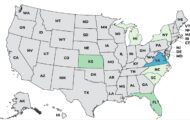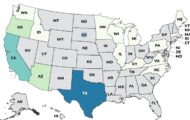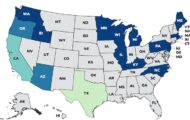The USDA’s Food Safety and Inspection Service (FSIS) has released their second quarter report of a year-long pilot program that assesses whether retailers are using the government’s recommendations to address Listeria monocytogenes contamination in their deli departments. The program started in January 2016. The report states that more retail delis are following recommendations.

Listeria monocytogenes contamination is a serious issue with deli products, especially sliced meats and cheeses. There have been several outbreaks in the past few years linked to these products, particularly soft cheeses. There is zero tolerance for Listeria monocytogenes bacteria in ready-to-eat foods because this infection can be so devastating, and because there is no kill step before the consumer eats these products. And the pathogen can be persistent in some environments, and can be difficult to eradicate.
The government surveyed 503 retail delis in the second quarter, up from 334 surveyed in the first quarter of 2016. In the second quarter, 87% of retail delis followed recommendations addressing product handling, up from 82% in the first quarter. More also followed cleaning and sanitizing recommendations (82%, up from 76%), facility and equipment controls (97%, up from 96%), and employee practices (96%, up from 92%).
You can read more about the project at FSIS “Best Practices Guidance for Controlling Listeria monocytogenes (Lm) in Retail Delicatessens.” The program guidelines were issued in June 2016. The project includes information about regulation of meat and poultry products at retail, information about product handling and facility sanitizing, a deli self-assessment tool, and references.




